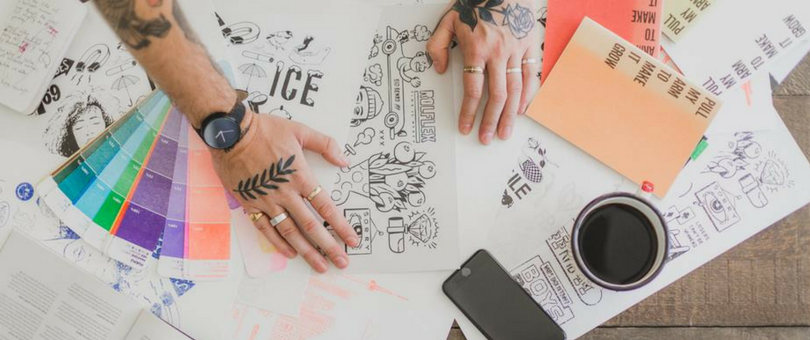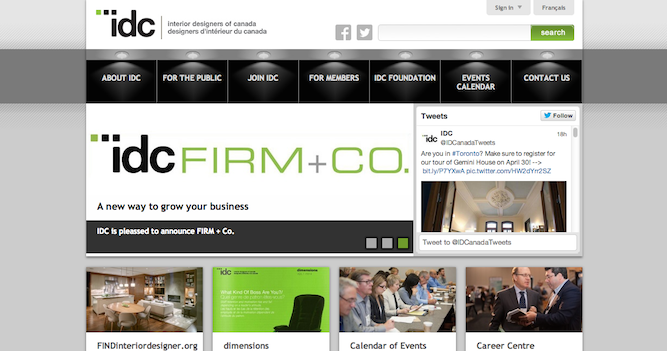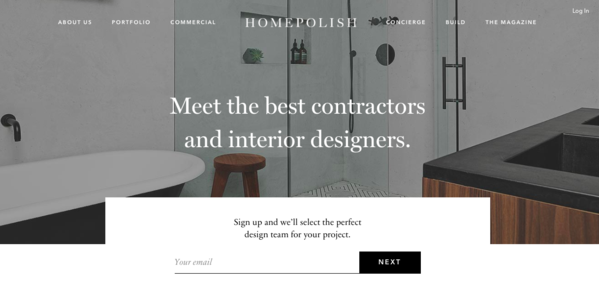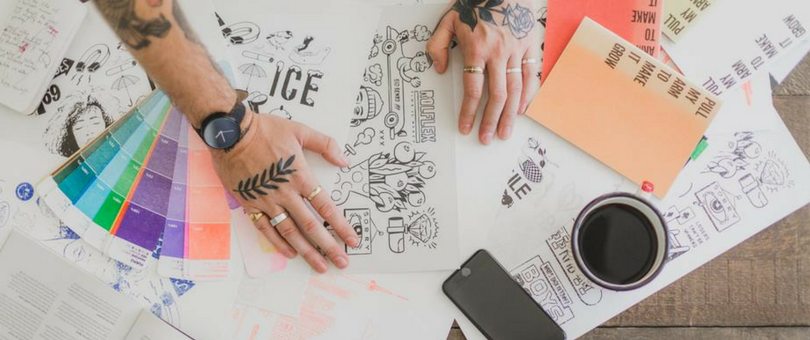 When you’re used to being a bootstrapping entrepreneur, you might have a tendency to take a DIY approach to tackling most challenges in your retail business.
When you’re used to being a bootstrapping entrepreneur, you might have a tendency to take a DIY approach to tackling most challenges in your retail business.
Whether you’re opening a pop-up or committing to something more long-term, the world of retail can be daunting when you have to consider innumerable things like your window display, store layout, signage, and visual merchandising.
However, sometimes it makes sense to leave certain tasks to a professional — if you have the budget, that is. This is especially true when it comes to the interior design of your store. While it’s possible for retailers to create an interior design themselves, making a store appealing, inviting, and designed to optimize your sales can be more difficult than it looks.
And that’s where the professionals come in. The process of hiring an interior designer for your retail store is similar to hiring one for your home or office. Though some specialize in residential or commercial environments, most are trained to handle both types of jobs. Even though interior designers are often well-versed in both commercial and residential designs, you’ll want to find the right person for the job based on your needs.
But first, let’s clarify why hiring an interior designer for your retail store can help your offline sales.
Why Hire an Interior Designer?
There are plenty of practical reasons to hire a professional to create your store’s interior design. Some of the most common advantages include:
- Saving money: Sounds counterintuitive right? But think of all the costly mistakes you might make. Working with an interior designer can help you avoid expensive errors in judgment.
- Budgeting and planning: As with doing anything for the first time, creating a budget, researching products and prices, complying with regulatory matters, and planning timelines can be a major headache. But an interior designer can help you sidestep all of that.
- Their network: Typically, interior designers have solid relationships with select vendors and can obtain discounts and access resources that might not otherwise be available.
- Coherence: Interior designers have a trained eye and are excellent visual storytellers. That means that they’ll pay close attention to how all the minor details come together to create the complete customer experience
- The “wow” factor: Let’s face it: Worrying about your store’s “bounce” rate is just as vital as offline as it is online. So, why not optimize for conversion with an interior designer?
Now that we’ve established the “why” behind hiring an interior designer, let’s look at some of the key steps to take to ensure that the person you hire is right for the job.
FURTHER READING: Learn more about the basics of visual merchandising in our guide to high-converting product displays.
How to Hire an Interior Designer
Ask Around
There’s nothing quite like word-of-mouth referrals when you’re trying to find seasoned pros to work with.
Start with asking friends, family, and other acquaintances in the industry. If you don’t find anyone offhand, take note when visiting other retail stores and see what catches your eye. Ask the owner who did their interior design and about their experience. Also, ask for a price range so you know the kind of investment you’d need to make to work with that professional.
Look Online
At some point in your search, you may turn to good old Google to help you find the right designer for the job. We decided to save you the hassle and point out some great online resources where you can start your search.
American Society of Interior Designers (ASID)
This is an online community of designers, industry representatives, educators, and students, where you’ll be able to find and locate interior designers near you in the U.S.

Interior Designers of Canada (IDC)
Founded in 1972, the Interior Designers of Canada is a Canadian advocacy association which makes it easy to find interior designers for projects both small and large.

Though geared primarily towards homeowners looking for home remodeling and design help, Houzz’s “Find a Pro” feature allows you to easily access a database of more than two million professionals who won’t have a problem adapting their expertise to a retail environment.

This NYC-based startup is looking to shake up the interior design landscape with designers across the U.S. available for by-the-hour services with no markups or hidden fees. Again, though they’re focused more on residential and office clientele, their expertise can be indispensable for retail environments as well.

Define Your Vision
This is an important step because when you start meeting with potential candidates. You’ll want to be able to clearly and effectively communicate what kind of interior design you’d like to incorporate into your store.
Start with foundational design aspects, such as styles you like, color palettes, and types of visual merchandising you envision using. These are all good starting points for the interior designer to work with.
Try organizing your ideas on Pinterest. Not only can you find an infinite amount of inspiration, but you can create a board to start collecting images for your designer to reference.
Interview Several Candidates
Not only will you want to look at every designer’s respective portfolios and relevant projects, you’ll want to ask them to break down their process for tackling your job.
In the interview, ask them to spell out timelines, work schedules, and fees, but also request references you can call to have first-hand accounts of what it’s like to work with them.
Create a Clear and Detailed Contract
Once you have a candidate for the job and come to an agreement on what’s expected from both parties, the next step is to put everything on paper. Clearly outlines the terms and payment details in a contract agreed upon by both parties.
You can use an interior design contract template and customize it based on the specifics of your agreement to save yourself a little time.
Moving Forward With an Interior Designer
Once contracts are signed, agreements made, and expectations set, kick off the process with a bang and get ready to see your vision, brand, and products come to life before you in their new home, a beautifully designed retail store that catches the eye on the street and past the door.
If you’ve hired an interior designer for your retail store or commercial space, be sure to let us know the good and the ugly side of your experience by commenting below.

